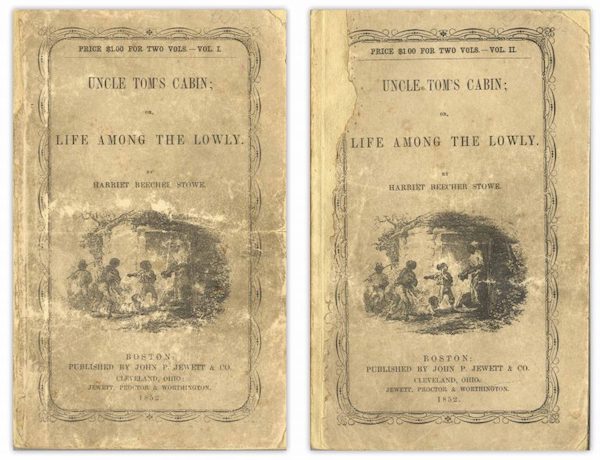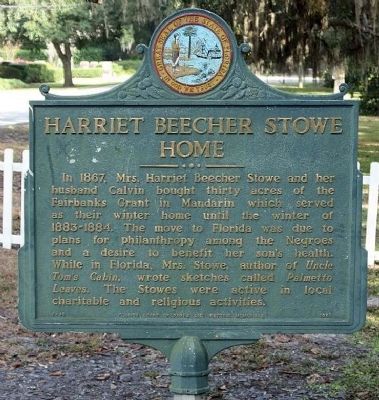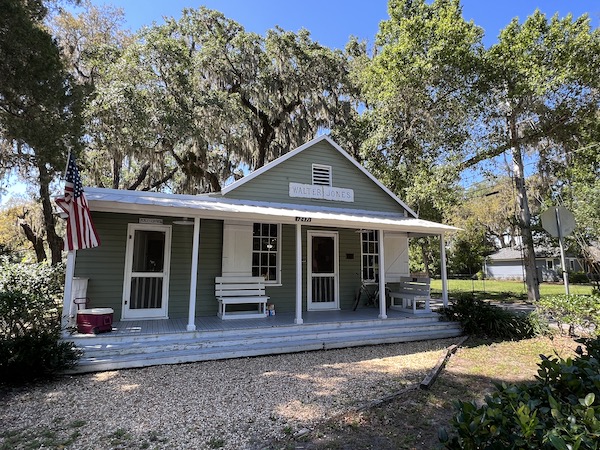Harriet Beecher Stowe
If you visit the Community First Credit Union on State Road 13 in Mandarin, Florida, south of downtown Jacksonville, you will see a full wall dedicated to the life of abolitionist and author, Harriet Beecher Stowe. There is a photograph of her home and likeness and of the trees along the road on which she once lived in Florida.
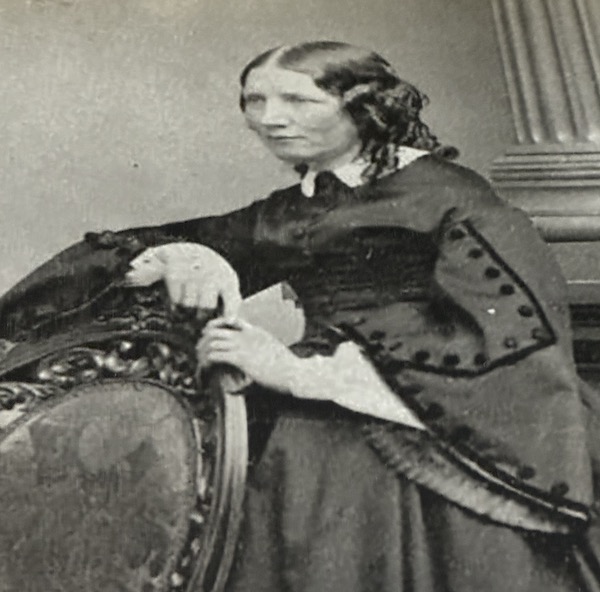
Stowe and her husband, Calvin, owned property on a once dirt road, now called Mandarin Road in Mandarin, Florida for some 17 years beginning in 1867. It was complete with orange groves, large oak trees and sweeping moss. There, she and her family wintered from 1867-1884.
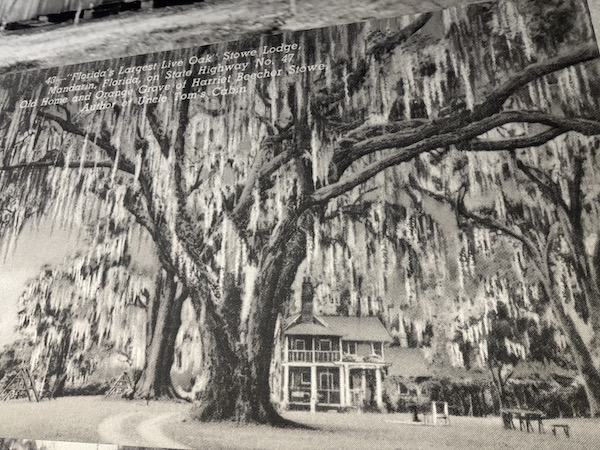
When talking to long-time folks in Mandarin you hear that she was an abolitionist who helped Black families, worked with children in the schools and advanced the Freedman’s Bureau. She was well-known in the area for having written the runaway best-seller, Uncle Tom’s Cabin in two volumes in 1852.
The book was such a hit that she was invited to Washington, DC to meet with President, Abraham Lincoln in 1862 where he is known to have said, “Why, Mrs. Stowe, right glad to see you. So, you’re the little woman who wrote the book that started this great war”. In Stowe’s book, Men of Our Times, she wrote of Lincoln, “Lincoln was a strong man, but his strength was of a peculiar kind; it was not aggressive so much as passive, and among passive things it was like the strength not so much of a stone buttress as of a wire cable. It was strength swaying to every influence, yielding on this side and on that to popular needs, yet tenaciously and inflexibly bound to carry its great end. Probably by no other kind of strength could our national ship have been drawn safely through so dreadful a channel.”
It is said that she was at first critical of the President but after meeting and talking with him, she softened and found common ground. President Abraham Lincoln is best known for “preserving the Union, ending slavery and creating the possibility of civil and social freedom” for Blacks.
“Harriet Beecher Stowe was born in 1811 and died in 1896. Her anti-slavery book, Uncle Tom’s Cabin was an immediate bestseller and rumour has it that she was paid by the paddle boats of the time to sit on her Mandarin home on the St. Johns River and write so folks could see her from their excursion.
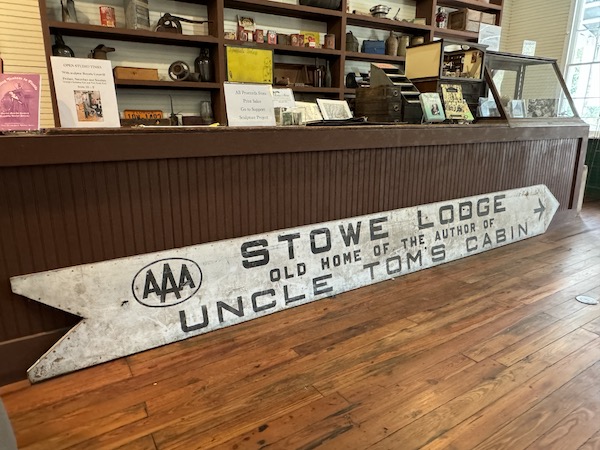
Stowe and her family helped organize Church of Our Savior Episcopal in Mandarin. She was raised by Calvinist, Lyman Beecher who spent his time as a preacher. She was married to Calvin Stowe, a professor and Biblical scholar who sought to enhance the public education in the United States. He became Stowe’s literary agent when her book became a world-wide success and was very involved with the Church or Our Savior growth.
In a letter to her brother, Charles Stowe wrote of her plans mentioning her reasoning for finding a place in Florida and her involvement with the church.
“My plan of going to Florida, as it lies in my mind, is not in any sense a mere worldly enterprise. I have for many years had a longing to be more immediately doing Christ’s work on earth. My heart is with that poor people whose cause in words I have tried to plead, and who now, ignorant and docile, are just in that formative stage in which whoever seizes has them.”
“Corrupt politicians are already beginning to speculate on them as possible capital for their schemes, and to fill their poor heads with all sorts of vagaries. Florida is the State into which they have, more than anywhere else, been pouring. Emigration is positively and decidedly setting that way; but as yet it is mere worldly emigration, with the hope of making money, nothing more.”
“The Episcopal Church is, however, undertaking, under direction of the future Bishop of Florida, a wide-embracing scheme of Christian activity for the whole State. In this work I desire to be associated, and my plan is to locate at some salient point on the St. John’s River, where I can form the nucleus of a Christian neighborhood, whose influence shall be felt far beyond its own limits.”
It was well-known Stowe also wanted to help her 4th son, Frederick who was troubled with drinking problems. She felt he could find worth and value working the grove of Mandarin. There, she felt he could find a place he could work and escape his worries. He managed the citrus farm for a while but after a time, he left going to San Francisco. She never saw him again.
Stowe and her family spent some 17 years in Mandarin and became well-known in the community. Even today, people are celebrating her life at the Museum and in remembering a life well lived.
See you Tomorrow,
Nan
Sources: Mr. Lincolnswhitehouse . Org, Mandarin Museum, Google Search Q and A, Emmett Looman article, Exploring Florida, Wikipedia, Personal visits to Mandarin.
